by Jocelyn Watkin | Jan 6, 2020 | Information |
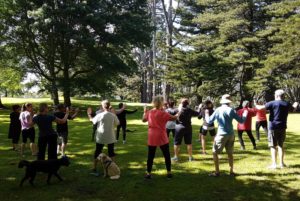 This is a post from January 2020.
This is a post from January 2020.
When: Sunday mornings, 9 – 9.45am, starting on Sunday 5 January 2020 and every Sunday morning in January and February (weather permitting).
When: Tuesday evenings, 6 – 6.45pm, starting on Tuesday 7 January 2020 and every Tuesday evening in January and February (weather permitting)
Where: Pohutukawa Drive in Cornwall Park, Auckland 1051. Refer to map: Tai chi will be under the trees to the left of Pohutukawa Drive, about half-way up this road (when entering Cornwall Park from Greenlane Road West). Look for the signs and your instructors in red Kia Ora Tai Chi shirts. Details on how to get to Cornwall Park
What to wear: Loose, comfortable clothing, sun hat, sun block and flat shoes. Please bring insect repellent and a drink bottle of water.
Ideal for beginners. All ages welcome. Just come along. No need to RSVP.
What happens if it is wet? The cancellation notice will be posted on the Kia Ora Tai Chi facebook page. https://www.facebook.com/kiaorataichi/ Or you can ask Jocelyn by text on 027 493 9851.
by Jocelyn Watkin | Dec 8, 2019 | Information |
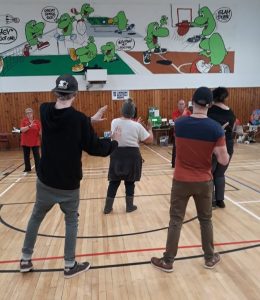
The Kia Ora Tai Chi team teaching tai chi the “He Aha Te Hauora? What the Health?” Expo in Manurewa
Most of us know that exercise can help to reduce stress and boost your mood.
Tai chi is one of the best, but probably also the most underrated exercise for stress relief and improvement in your overall health. This is possibly because it doesn’t seem to fit the Western world’s obsession with the need to ‘go hard’ or, worse, the mantra of ‘no pain/no gain’.
Tai chi works for stress relief and for many other health-related issues because it combines low-impact movements with meditation for a body-mind workout.
Dee Ogilvy, who has practiced tai chi for more than 20 years and now runs her own tai chi programme, while also teaching it as a part of Missouri State University’s Employee Wellness Program, says: “tai chi’s positive effects on our mind is mostly thanks to the meditation component of the exercise”.
A small study published in Psychoneuroendocrinology reported that brief mindfulness meditation (three x 25-minute sessions) minimised psychological stress. Ogilvy notes that the effects are even greater when movement and meditation are paired together — having to be present and focus on your movements and breathing helps bring on the relaxation.
Studies have also shown that tai chi can improve the quality of your sleep, improve cardio function, and, for older adults, can have positive effects on cognitive function and memory.
Testimonial on the calming, peaceful effects of tai chi during the “He Aha Te Hauora? What the Health?” Expo at the Manurewa Leisure Centre on 21 June 2019:
“Kia Ora Tai Chi was at the Expo! Jocelyn, Pat and Jeff led us in a demonstration. Tai chi is an incredibly powerful practice for your wellbeing. When they started the energy of the room shifted to a more peaceful vibe. It was magical.”
Testimonial from Edith of Drive Consumer Direction Counties Manukau
Note: Drive Consumer Direction Counties Manukau is a network that represents the interests of people in the Counties Manukau region who experience mental health and/or addiction challenges.
Discover more:
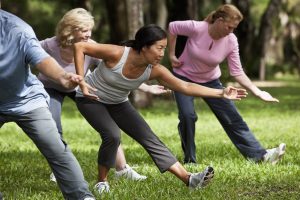
by Jocelyn Watkin | Aug 26, 2019 | Information |
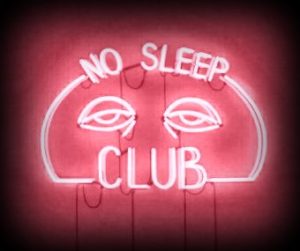 It’s a night club, but there’s no dancing or happiness. The ‘No Sleep Club’ is no fun at all. It feels like you are stuck at the Hotel California – “You can check out any time you like, but you can never leave”. [Lyrics by The Eagles, 1977]
It’s a night club, but there’s no dancing or happiness. The ‘No Sleep Club’ is no fun at all. It feels like you are stuck at the Hotel California – “You can check out any time you like, but you can never leave”. [Lyrics by The Eagles, 1977]
However, Dr Giresh Kanji has discovered five keys, any of which will open the door to the escape route.
After decades of research, literature searches and clinical trials, Dr Kanji identified the following activities (the keys) to escape insomnia. These also help with depression and anxiety, which are often closely related to insomnia:
- Tai chi
- Meditative breathing
- Exercise that is at least slightly rigorous
- Sauna
- Yoga
There were no surprises for me to discover that tai chi is in the Top 5. Nearly all of my students (and me) comment on how much better they sleep after a tai chi class.
Note: not one of the five activities includes medication or hospital visits.
You don’t have to do all of the activities listed above, just pick one and get started. Fortunately, with tai chi you can win the trifecta as the first three activities listed above are packaged together when you learn tai chi. If you’re doing tai chi in our humid January and February weather, you might even get something close to sauna conditions, too. 🙂 Click here to try a special tai chi breathing exercise with me. It takes less than a minute to learn.
Find out more about why and how these five activities [habits] work by watching this TV interview with Dr Kanji. It is just under 5 minutes duration. Or you can clilck on this link: https://youtu.be/F8GIgJ3fM7M
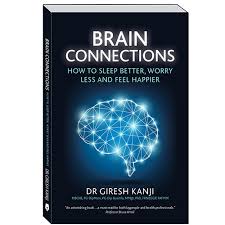 Dr Kanji has written a book called: “Brain Connections: How to sleep better, worry less and feel happier” where he explores the role of childhood trauma, stress, and the links between stress-related symptoms and fatigue, concentration and dementia. He outlines the five habits [activities] that reduce the activity of the stress brain and improve insomnia, anxiety and depression. Click here to learn more about this book or to buy it.
Dr Kanji has written a book called: “Brain Connections: How to sleep better, worry less and feel happier” where he explores the role of childhood trauma, stress, and the links between stress-related symptoms and fatigue, concentration and dementia. He outlines the five habits [activities] that reduce the activity of the stress brain and improve insomnia, anxiety and depression. Click here to learn more about this book or to buy it.
Dr Kanji is a New Zealander and a graduate of the Otago Medical School. His is a musculoskeletal pain specialist and researcher. He explored the sensory amplification of pain in his PhD including the role of the human stress response.

Dr Giresh Kanji
He is an honorary Senior Lecturer at Auckland University, the chairperson of the NZ Pain Foundation and editor of Australasian Musculoskeletal Medicine. To find out more about him: https://gireshkanji.com/dr-giresh-kanji
Find out more:
by Jocelyn Watkin | Jul 19, 2019 | Information |
 Note: This is a post from July 2019
Note: This is a post from July 2019
If you want to get fitter without puffing, feel healthier and live stronger for longer, then tai chi can help you.
If this sounds like something you want then the team at Kia Ora Tai Chi would love to hear from you. We are looking for adults of any age and ability, who are keen to make a regular commitment to learning tai chi.
To find out if tai chi is for you, please come along to one or both of the free “taster sessions” on Monday 29th and Wednesday 31st July 2019, in Manurewa.
To RSVP or to ask questions about the classes, please use the Contact Form
After the free sessions, we encourage anyone who can attend AT LEAST once per week to enrol in a new tai chi class for beginners, which will start on Monday 5th and Wednesday 7th August 2019, 6.30 – 7.15pm.
Cost of classes: The classes on the 29th and 31st of July 2019 are FREE. After that, prices start from $9.50 per class. A discount is available for those who are referred by ACC and Age Concern for the Community Group Strength and Balance Exercise programme (“Live Stronger for Longer”). You must be aged 65+ to be referred.
What to wear: Please wear loose comfortable clothing and flat-soled shoes (such as sneakers, trainers or tennis shoes). Please also bring a drinking bottle of water.
Here at Kia Ora Tai Chi, we are all constantly amazed at the health improvements that our students tell us about once they attend our classes on a regular basis:
- sleeping better at night
- finding it easier to go up and down stairs
- improved breathing, with less wheezing or feeling like they’ve ‘run out of breath’
- playing with their children or grandchildren for longer without getting tired
- lowering their high blood pressure
- feeling more flexible and moving better with less aches and pains
- better balance/less falls
- feeling better all over and less stressed
- toned muscles.
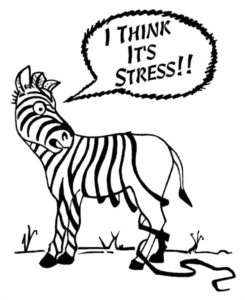
Learn how to reduce stress with tai chi
There have been hundreds of clinical studies over many years that confirm the health benefits of tai chi, especially for the Tai Chi for Health programmes that we teach at Kia Ora Tai Chi. You can read more about these clinical studies here.
One aspect consistent across all studies and trials is that none of these benefits happen overnight or after just one class. The trials take place over several weeks, sometimes several months, and the people being studied do tai chi at least 2 -3 times per week.
Most of my students attend at least one class per week, often two, and several practice between each class.
We are now looking for a group of new beginners who accept that their health and well-being is worth a regular commitment to tai chi.
Find out more about Kia Ora Tai Chi classes, how to get to the venue, and what to expect.
Discover more health benefits from tai chi.
Want to know even more about tai chi? Click here
Please RSVP for the free classes on the 29th and 31st July 2019 by using the Contact Form. You are welcome to attend one one or both of these classes.
Come along and say kia ora. We’d love to see you. We’re a friendly bunch at a great venue that has lots of free parking.
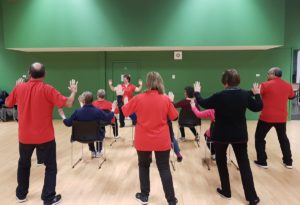
A Kia Ora Tai Chi class
by Jocelyn Watkin | Jul 8, 2019 | Information |
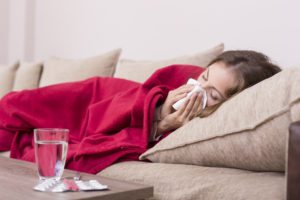
Sadly, there is no magic, instant cure for the common cold.
Depending on your immune system, plus how much time and rest you can give yourself, most people will overcome a cold virus in just over a week or so.
However, being aware of the risk factors of catching a cold and reducing those risks can help avoid or reduce the severity of a cold.
There are five broad risk factors:
- Lack of sleep
- Stress
- Age
- Season
- Smoking
Tai chi can really help with the first three.
Sleep: Rest and getting enough sleep is vital for good health. Nearly everyone who attends my tai chi classes mentions how they always get a better night’s sleep after class. It’s not just the exercise that helps you to sleep. It’s also the calming effect of the deep breathing and the slow, smooth continuous movements of tai chi.
If you do get a cold or other illness, try to rest and sleep as much as possible as it will help with your recovery.
Stress: Relieving stress goes hand-in-hand with rest and a good night’s sleep in terms of helping to reduce the risk of catching a cold. Numerous studies and clinical trials have proven the tai chi can reduce stress
Studies at Carnegie Mellon University in Pittsburgh suggest that psychological stress can raise your risk of developing a cold. They suggest it affects how the stress hormone cortisol works. This hormone regulates inflammation in your body. When you’re under stress, cortisol may be less effective at managing your body’s inflammatory response to the cold virus. This may cause you to develop a cold. Read more about this
To minimise stress Carnegie Mellon University recommends a number of techniques, which include tai chi. Discover these techniques
Click here to read an article I wrote on how to use tai chi breathing to bust stress in just a few minutes per day.
Age: Children and older people are more at risk of getting a cold. In children, this is because their immune systems are not fully developed. In older adults, it is because their immunity levels drop as part of the ageing process. Clinical trials have concluded that regular sessions of tai chi may boost the immune systems of older adults and could also help to improve the effectiveness of vaccines, including the ‘flu vaccine. You can read more about these trials here:
Season: Just because the weather is cold, doesn’t mean you’ll get a cold. However, you’ll probably spend more time indoors in the winter months and that means more ‘rubbing shoulders’ with other people. You can lower your risk with good hygiene like washing your hands and lower the risk to others by staying home when you are sick and covering your nose and mouth when you sneeze or cough.
Smoking: Smoking compromises your immunity levels and second-hand smoke can disrupt immunity in others. If you smoke, talk to your health professional about how to quit.
While some risk factors are hard to control, others can be managed. Regular practice of tai chi could lower your chances of catching a cold.
Read more about the risk factors for the common cold here
Related information: A cold fact: High stress can make you sick
 This is a post from January 2020.
This is a post from January 2020.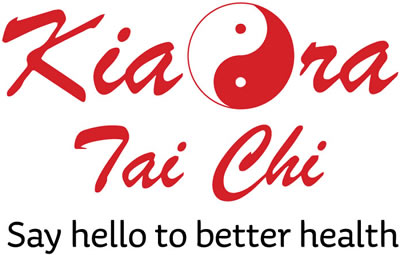


 It’s a night club, but there’s no dancing or happiness. The ‘No Sleep Club’ is no fun at all. It feels like you are stuck at the
It’s a night club, but there’s no dancing or happiness. The ‘No Sleep Club’ is no fun at all. It feels like you are stuck at the  Dr Kanji has written a book called:
Dr Kanji has written a book called: 
 Note: This is a post from July 2019
Note: This is a post from July 2019

